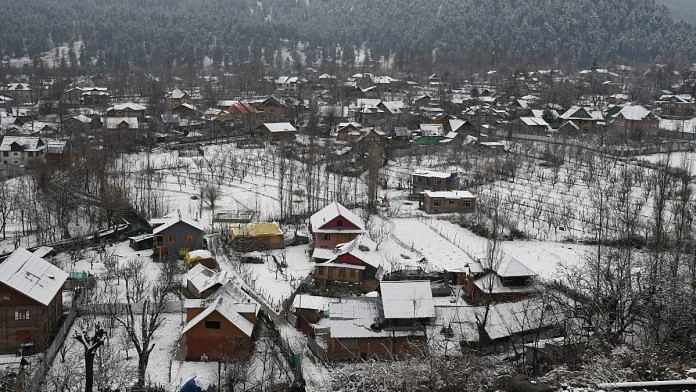Thank you dear subscribers, we are overwhelmed with your response.
Your Turn is a unique section from ThePrint featuring points of view from its subscribers. If you are a subscriber, have a point of view, please send it to us. If not, do subscribe here: https://theprint.in/
“Do not ask what the country has done for you, ask yourself what have you done for the country?”
Throughout history there has always been incidents where a superpower takes over a land and claims it to be theirs forever. Even though there will be initial and sometimes prolonged resistance for the natives, eventually they will come to consensus that it is better for them to be part of the superpower then be on their own. For example, US initially started off as a colony of 13 but eventually grew to 50 through purchases, wars and cunningness. Today, every single citizen identifies themselves as an American and pledge their loyalty to their country, seldom to their state. This loyalty was not cultivated overnight, but rather gained by the government over decades due to the minimal prosperity, security, and equality the country provided in return. Despite all these, US formation is still a dark period in its history because, US formation equates to the uprooting of many Native Americans, denial of their rights, and alienating them in their won lands. Must India also have this dark period of history?
Integration can be in two ways. Kashmir being integrated into India or India being integrated into Kashmir. Though both achieves integration, there is a thin line of difference as only the latter can achieve a united India in the long run. India as a union was formed by accepting the diversity spread in its breadth and width, where majoritarian views were not imposed on the minority. From the beginning, respecting the diverse culture and language has been an essential component of its integrity. Pandit Nehru was well aware, Indians were more faithful to their religion and language rather than the concept of India despite fighting for freedom under one identity. This gave birth to linguistic state division and pushed the idea of Hindi being our national language to the sidelines. Even today, South India refuses to acknowledge Hindi as the national language, partly due to fear of losing its individuality and fear of being discriminated in its own country. As such, is it fair to expect Kashmir to be open about integration with the rest of the country by adapting? Or should we be taking steps to accommodate them?
“Them” in the strictest sense, is not an alienation of Kashmiris. They are Indians. This is what we want to believe and hope them to feel. This belief will come for most of us, because that is our patriotism. But the question is do Kashmiris feel that way too? Can we force our patriotism in others? Indian government has fully realized Kashmir is needed for India from a strategic point of view and to hold the rest of the states together in this union. But what must be done for Kashmiris to realize, they need India as much as we need them?
It’s been almost 4 years since Article 370 was revoked, but has it really made any changes to people of J&K. Though physical and political integration have taken its course, it is emotional integration that we must work towards to. The government should realize the vital role it is playing in shaping the future of India and not give room to any religious sentiments and place Kashmiris and their development as its priority. Legislators should realize a peaceful valley does not equate to a Hindu majority valley. Though China has spent billions in developing Tibet, Tibetans still long for independence. This is mainly due to China trying to integrate Tibet by destroying its unique identity and culture, and imposing Chinese values on Tibetans. A lesson we should learn in the fetal stage of Kashmir’s integration. It will be tempting to build a Hindu Rashtra by alternating the demographics, but current or future governments should place long term benefits for the nation over short term political gains built on subtle discriminative policies.
Regardless of any policies, if the people refuse to accept then everything will go down the drain. Therefore, Kashmiris must also realize nation comes first over anything. As patriotic as it sounds, this is the only way Kashmiris can realize the economic benefit they can reap out of India by integrating themselves into Asia’s second largest economy. India has a lot of potential that Kashmir can make use of from education, healthcare, security and trade. Unless Kashmiris see this potential, and trust revoking Article 370 was part of the bigger picture, they can never be at peace with it. “Do not ask what the country has done for you, ask yourself what have you done for the country?” In Kashmir’s case the, it is not only the Kashmiris that must ask this question, but the rest of India too.
These pieces are being published as they have been received – they have not been edited/fact-checked by ThePrint.

